

Unique initiatives addressing specific community needs
Dedicated programs for community welfare and cultural preservation
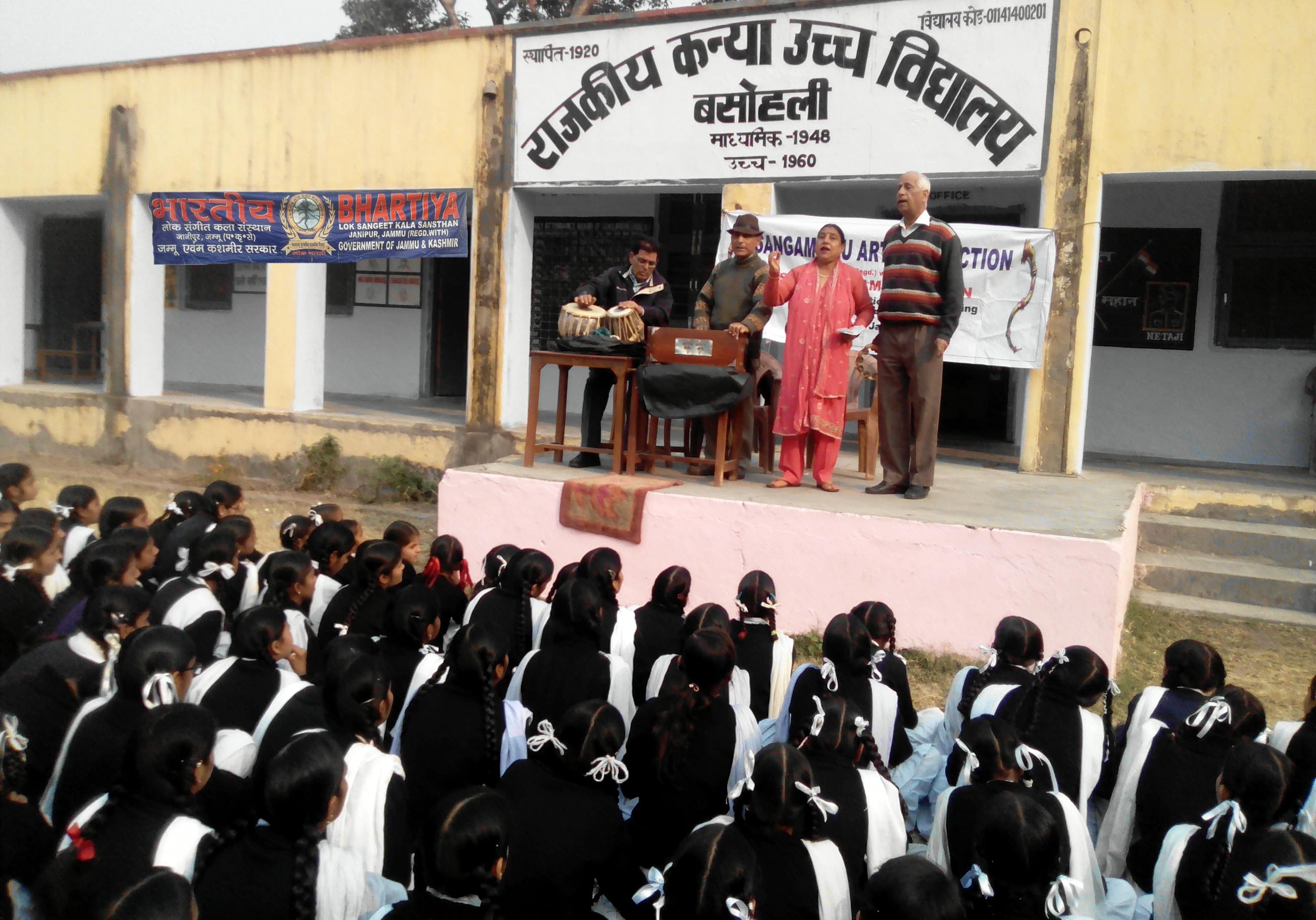
Public Awareness
Though Bhartiya Lok Sangeet Kala Sansthan is keenly interested for the overall Development of Art and Culture of J&K State as well as Welfare/Awareness of general people of urban and rural masses and their rehabilitations but due to manager resources of the organization. Accordingly, Bhartiya Lok Sangeet Kala Sansthan Organization has/had adopted a resolution, where. In addition to the BLSKS is also working in the various fields as under:- 1. To create awareness & educating the people through folk media live entertainment program folk theatre, drama, dance, songs, skits, etc. About the ill effects of alcoholism and substance abuse on the individual, the family and the society at large. 2. To evolve culture specific models for prevention of alcoholism 3. To provide the whole range of community base services for the identification, motivation, counseling, de-addiction after care & rehabilitation of addicts. 4. To supports activities which are in consonance with the mandate of ministry of social justice & empowerment in this field. 5. Awareness programs for backward classes Gujjars, Backerwals, in the far flung area of J&K State. 6. Awareness programs for the ecological and forest departments in J&K 7. Legal awareness for the women 8. Medical awareness etc, as reflected in the Annual Reports 9. Free Computer Education & Music Education. 10. Day Care Health centre for elders and children affected from autism. 11. Water Sanitation. 12. Awareness program with Song and Drama Division / Regional Outreach Bureau on burning subjects of the Govt. Programs & Policies including Drug Abuse, Aids Control Society, Social welfare Dept. & Education Deptt.
M.L. Dogra
Jammu, Udhampur, Kathua, Samba
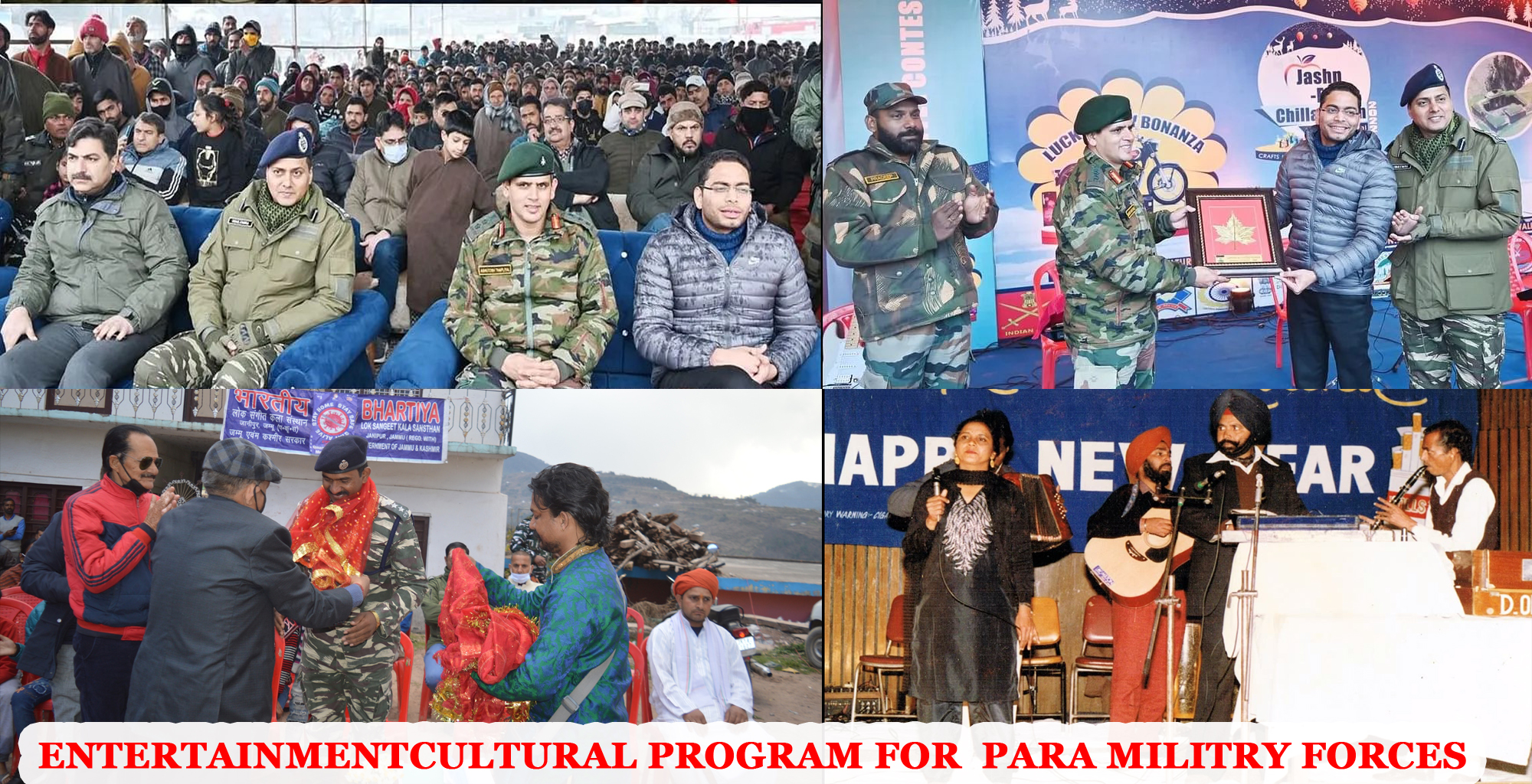
Cultural Events
Organizing cultural programs for paramilitary, army, and military forces to promote art and culture.
M.L. Dogra
Jammu, J&K
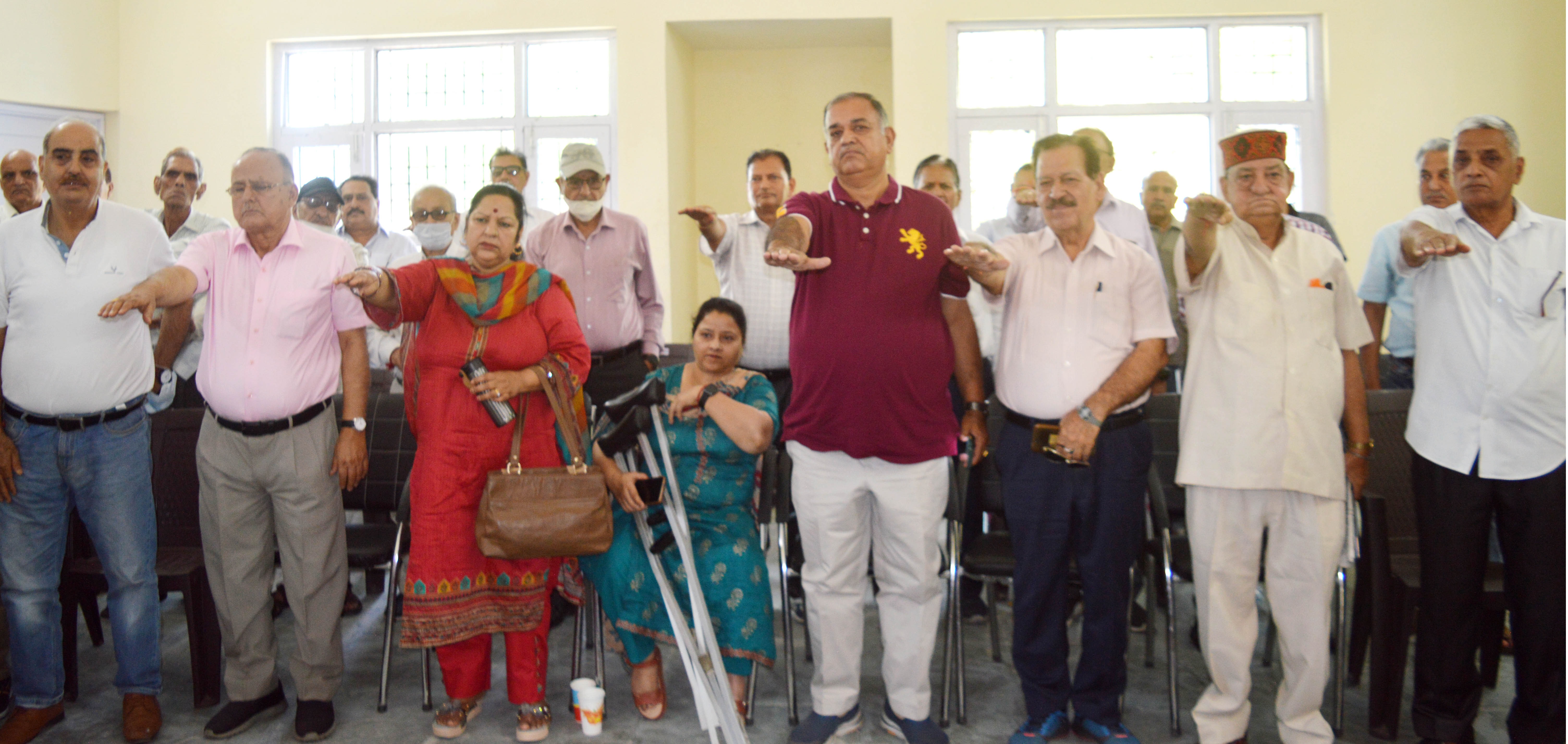
Elderly Care
Elderly care is social and personal requirements of the senior citizens of every family members. It is all about looking after their needs and providing them the required help without any delay and helps them enjoy their physical and mental well being. Old age is a sensitive phase; elderly people need care and comfort to lead a healthy life without worries and anxiety Younger generation should know their parents become sick, weak and frail. With their conditions come the need for more attention, more love, more understanding, and more importantly, quality elderly care. While you as a child or relative can care for your elders, often, the challenge can be huge as you juggle care giving with your own family, life, and career. Care giving for the elderly can be a demanding task, and you can find yourself torn between your own needs and those of the elderly you’re caring for. While elderly care can be difficult with its many demands, it is still important to provide them what they deserve for their own health, safety, and well-being. If you sometimes find it hard to care for your elderly loved ones because you have your own family and job to occupy you, you can seek the help of quality adult day care and assisted living facilities such as Big Hearts. Here’s why you should make sure they are provided with the best elderly care: 1. They raised you, and made sacrifices for you and the family all these years to make sure you grown up to be the person that you are. You need to provide them the best care because they deserve it. They cared for you and now they’re the ones who need you. 2. As you grown, your elderly parents were there every stop of the way. Through your fumbles and triumphs, they have loved you unconditionally. You owe it to them and to yourself that they are in good hands and that you show your love in return by caring for them or providing them the same care they have shown you. 3. From the moment your mother carried you in her womb, until you grew up to be who or what you are today, your parents have definitely made sacrifices to make sure you are in good hands. Do the same for them by providing them quality elderly care at home or in adult daycare facilities such as Big Hearts. 4. Caring for them and attending to their needs is one of the many ways you can show that you love and appreciate them. 5. Your elders are part of your family and they can impart traditions and ideals that have been integral to your family’s history and your own personal identity. 6. They have been through things you can’t imagine. Throughout the years, they have weathered the many storms of life, and from here you can find precious life lessons. Therefore, take the time to heed what they say and learn from their lives. 7. Providing them good elderly care by yourself or with the help of professionals stops them from feeling isolated and depressed. You help continue to provide them a sense of community, a social life, that empowers and energizes them. 8. They lived through a time where the value system is different from yours. By spending time to talk to them and get to know their history, you can gain insight into how they lived, how life was in their times, and learn values that you can also apply to your generation. 9. Part of properly caring for your elderly loved ones is providing them a sense of purpose so they will always look forward to the days ahead of them instead of being filled with dread or uncertainty. 10. As a human being, it’s just right that you care for your elders. After all, you are soon going to become one to. By caring for your elders, you show your own humanity and simply do what is right. But Lack of awareness regarding the changing behavioral patterns in elderly people at home leads to abuse of them by their kin. One of the important activities of Bhartiya Lok Sangeet Kala Sansthan is to provide social, recreational and health services like physiotherapy, Music therapy, Music entertainment, Music Education, Yoga, for needy elderly people above 60 years of age. BLSKS running an day care old age home for above 60 elder people in Jammu, J&K UT besides providing home based geriatric health services for 50 senior citizens for needy. Our Medical, Music, Yoga Team visits the old people once in a week to provide health services at the spot besides undertaking Music Therapy, physiotherapy, Yoga etc. are provided Refreshment, recreational facilities, besides, Yoga sessions. We manage these activities for needy senior citizens out of the individual donation in cash and kind. Bhartiya Lok Sangeet Kala Sansthan organization also known as Lifeline Council is an independent, secular, non-governmental social non profitable, research and development organization working for peace, solidarity, human rights and sustainable livelihood issues in Jammu and Kashmir state of India, established in 2009. BLSKS has been working in the field of different health, human rights, child labour eradication, environment protection, bio-diversity conservation, sustainable livelihood promotion, child Brain development programme and free Music and computer education. The organization has building and infrastructure besides a team of dedicated volunteers and staff. BLSKs works in J&K UT, one of the most backward and poorest state of India covering 4 districts namely Jammu, Udhampur, Kathua and Samba. As a focal point of National Human Rights Foundation BLSKS works on Human Rights Networking and Advocacy throughout the State
DR. M.L. Dogra
Jammu, J&K
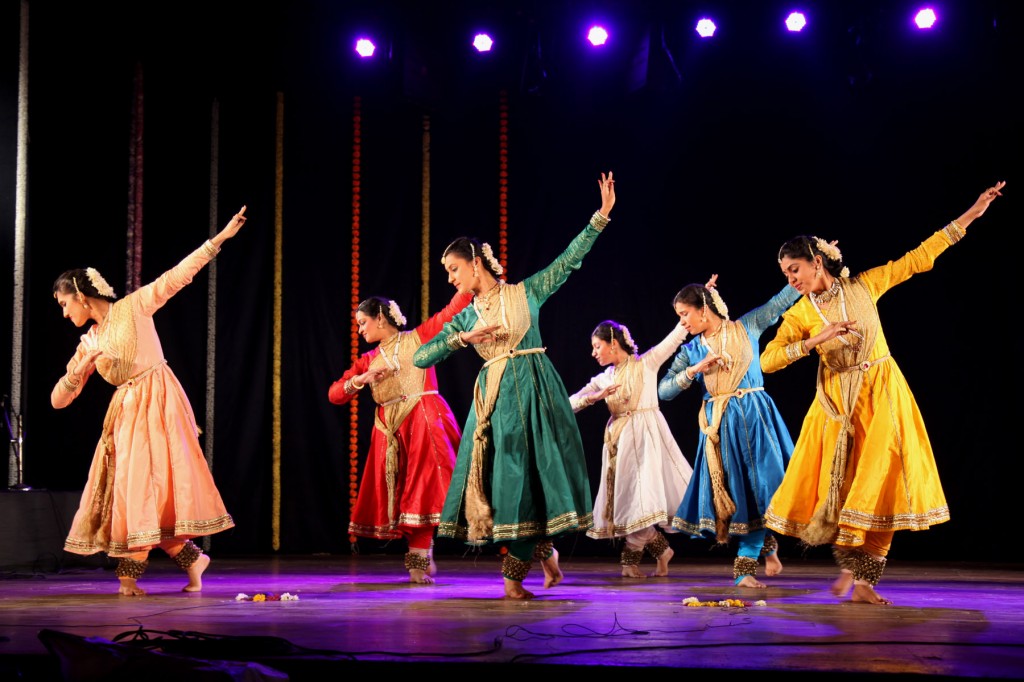
Folk theatrical forms in Jammu and Kashmir and other states of India are varied and ... identification, documentation and characterization and analysis of traditional expressive ... Western folklore just as folklore in any other part of the world is ... unstated assumption that folklore is either dying out or in a continual state of Jammu and Kashmir The folk theatrical tradition of Jammu and Kashmir is unique with different categories of dance, drama or music. The famous folk theatre forms of the region are:- Achi Lamo, Mane Pa in Ladakh; Bhand Pather in Kashmir; Bhagatain, Haran, Rasleela, Ramleela, Jagarna, Swang, Jatar and Jagrata in Jammu. Achi Lamo is adopted by the people of Ladakh as it has its origin in Tibet where its performance is called as „Topa Kambha‟. The performers usually come from Tibet to perform it and represent some Buddhist „Jatik Katha‟ along with dance, music and drama. This folk form is generally performed in the open. Another folk form of Ladakh focuses more on narration and dialogues unlike Achi Lamo. It is enacted by professional Mane-Pa families in Ladakh. The main purpose is to entertain the audience by providing humour and laughter. Kashmir has a rich folk culture as it becomes evident from the chronological records found in Nilamata Purana and Kalhan’s Rajatarangini. „Bandi Pethir‟ which was initially spelled as „Bhand Pather‟ is a folk form combining mimicry, music, dance, wit, humour and pranks. It is believed that this form emerged about two thousand years ago and attained its climax in tenth century. Abhinavagupta, from Kashmir also refers to „Bandi Pethir‟ as Bhanda-Natya‟ in his book Abhinavabharti written in tenth century. This testifies to the fact that, “Bandi Pethir” has remained a popular folk form for thousands of years. In Kashmiri language drama is called „Pather‟ and “Bhand” refers to the actor or performer. It acquired certain features of its own with the passage of time. It begins with a musical performance which besides attracting spectators also creates a temperament that resembles the intended drama. Themes for such dramatic performances are not generally pre-decided and the performer presents his talent through step by step upgrading, accessible material and circumstances to execute the form and entertain the audience. Jammu region, the tradition of folk theatre has been as rich, varied and reflective of the society and culture as anywhere else. Bhartiya Lok Sangeet also running projects on traditional folk forms of Jammu and Kashmir and other states of India.
Cultural Documentation
Documentation and research on folk theatrical forms like Achi Lamo, Bhand Pather, and Bhagatain in J&K to preserve cultural heritage.
M.L. Dogra
Jammu, Udhampur, Kathua, Samba
Performing Arts
Mr.Dogra’s outstanding Dance Dramas Productions staged like “Doli”, “Maa Sheran Wali”, “Kathoti Main Ganga”, and “Rang Dari Deo”, “Nai Chetna”, “Beti Bachao Beti Padhao”, “Tum Chandan Main Pani” and written more than 500 songs on various themes in Dogri, Punjabi, Hindi languages which have been appreciated by the audience and presented during the prestigious performances. He also composed 150 contemporary dances based traditional Music of North India bringing Dogri, Kamuani, Gharwali, UP, Punjabi theatre to the National limelight. Mr.Dogra’s has been highly instrumental in creating a new cultural renaissance in the State of Jammu and Kashmir and other states. Research in Music: - Dogra’s Father and Uncle were the renowned Phakh, Singers (Gattar) of Jammu Region. Under the inspiration of his Gurus Sh. B.L.Shah, Theatre Director and Writer Sahatik Acadamy Awards, UP, Guru Ranjit Singh, Kathak, Sattriya and Manipuri dance, Guru Sh. H.L Kundoo, Dance Director Kathak Bharat Nayam, Kathakali. Dogra travelled on foot in the interior villages of many states of India and meet Pandit, Gurus and Dancers, in Nam Ghars, Music Institutions, Folk Troupes for research of Folk Music, Folk Tales, Stages and Dances of India and collected the collection for in Various Productions on burning subjects Sh. Dogra also learn the Dance, Drama from renowned multi talent Producer Director Sh. Satya Narayn, Sarang who learn music from Guru Aman Ali Khan and Amant Khan. (a) Sh.Dogra is the first person in J&K State to promote the cultural Heritage of India who planned and started Navrata festival (National Level) first time at Katra, J&K, in the year 1997 in the History of Jammu and Kashmir, after presenting Dance Drama on “Mata Vaishno Devi” in coordination with Cultural Committee Katra, Tourism Department and Sri Mata Vaishno Devi Shrine Board and was honored by dignitaries every year from 1997 to 2008 for this best production in. J&K Region at Katra Jammu. (b) Sh.Dogra is first person to promote the culture of India who planed Holi Festival (Khari Bethi Holies, Mahila Holies and swangs) and written produced and directed Dance Drama “Rang Dari Deo” and presented more than 100 shows Nainital, Almora, Pithoragarh Dehradun and Lucknow. For the 1st time in Uttarakhand and Uttar Pradesh History on the theme of National integration and communal harmony. (c) Sh.Dogra has written / directed dance dramas Like “Doli”, “Sheran Wali”, “Tun Chandan Main Pani”, “Rang Dari Deyo”, “Ram-Lila”, “Lav-Kush” and hundreds of dances and songs in Dogri, Punjabi, Hindi on various evils of society and the same were highly appreciated by intellectuals VVIP’s, VIP’s and general public. (d) Sh. Dogra also organized many Sadhbhavna Samarohs and Pag Yatra from Khar-Khar Kala (Village of Shaheed Bhagat Singh to Jallian Wala Bagh, Amritsar) in 1995 with 200 artists. (e) Sh. Dogra has written two books one “Preet Lari” in Dogri and dance dramas “Maa Sheran Wali” - and “Doli” in Hindi and “Preet Lari” in Dogri Language which was approved financially supported by the Academy of Art and Culture of J&K Govt. Published in the Year 2010-2011. The Books were released by Sh. Shiv Kumar, Padam Vibhushan, Awardee and Minister of Culture, J&K Governments. His Poetry/Plays was also published in shiraja of Academy of Art Culture and languages of J&K Govt. and in prominent news papers of state
M.L. Dogra
Jammu, J&K
Cultural Preservation
Intangible Cultural Heritage means the practices, representations, expressions, knowledge, skills – as well as the instruments, objects, artifacts and cultural spaces associated therewith – that communities, groups and, in some cases, individuals recognize as part of their cultural heritage. This intangible cultural heritage, transmitted from generation to generation, is constantly recreated by communities and groups in response to their environment, their interaction with nature and their history, and provides them with a sense of identity and continuity, thus promoting respect for cultural diversity and human creativity. For the purposes of this Convention, consideration will be given solely to such intangible cultural heritage as is compatible with existing international human rights instruments, as well as with the requirements of mutual respect among communities, groups and individuals, and of sustainable development. The Convention for the Safeguarding of the Intangible Cultural Heritage defines the intangible cultural heritage as the practices, representations, expressions, as well as the knowledge and skills (including instruments, objects, artifacts, cultural spaces), that communities, groups and, in some cases, individuals recognize as part of their cultural heritage. It is sometimes called living cultural heritage, and is manifested inter alia in the following domains. • Oral traditions and expressions, including language as a vehicle of the intangible cultural heritage; • Performing arts; • Social practices, rituals and festive events; • Knowledge and practices concerning nature and the universe; • Traditional craftsmanship Bhartiya Lok Sangeet Kala Sansthan also working on intangible cultural heritage and preserving the same and documentation
M.L. Dogra
Jammu, J&K
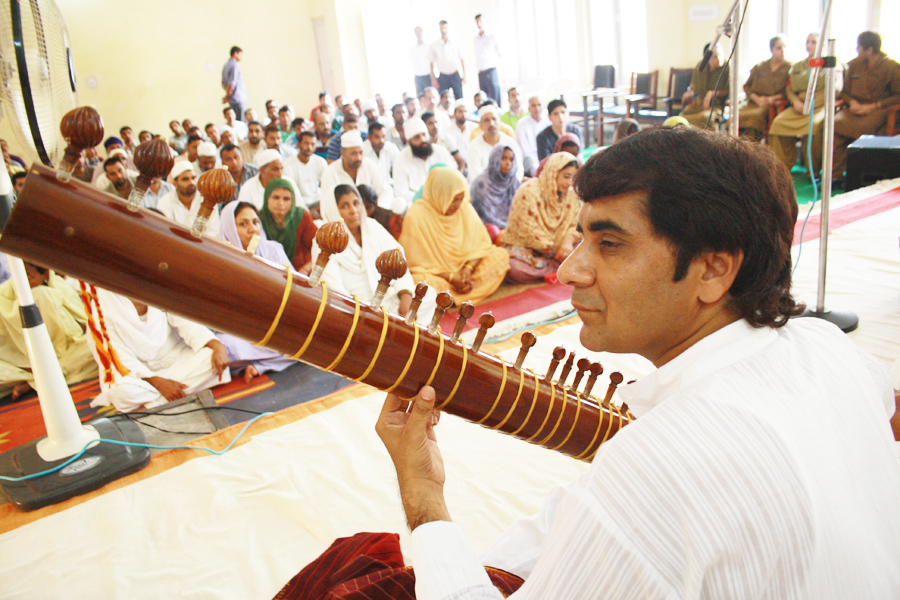
Music Therapy
Bhartiya Lok Sangeet Kala Sansthan is also running FREE Music therapy centre for affected children affected from Autism Spectrum Disorder Music is a universal human trait. The healing power of music has been acknowledged in almost all traditions of music. Music therapy is moving from a social-science model focusing on overall health and well-being towards a neuroscience model focusing on specific elements of music and its effect on sensorimotor, language and cognitive functions. The handful of evidence-based music therapy studies on psychiatric conditions have shown promising results. Traditional music, such as Indian classical music, has only recently been evaluated in evidence-based research into music therapy. The need for systematic research in this area is underscored. Autism Spectrum Disorder is a neurological and developmental disorder that begins early in childhood and lasts throughout a person's life. It affects how a person acts and interacts with others, communicates, and learns. It includes what used to be known as Asperger syndrome and pervasive developmental disorders. As mentioned below: Main Signs and Symptoms People with ASD often have problems with social, emotional, and communication skills. They might repeat certain behaviors and might not want change in their daily activities. Many people with ASD also have different ways of learning, paying attention, or reacting to things. Signs of ASD begin during early childhood and typically last throughout a person’s life. 1. Abnormal Body Posturing or Facial Expressions. 2. Abnormal Tone of Voice. 3. Avoidance of Eye Contact or Poor Eye Contact. 4. Behavioral Disturbances. 5. Deficits in Language Comprehension. 6. Delay in Learning to Speak. 7. Flat or Monotonous Speech. 8. Inappropriate Social Interaction 9. Not play “pretend” games (for example, not pretend to “feed” a doll) 10. Repeat actions over and over again Diagnosis: Diagnosing ASD can be difficult since there is no medical test, like a blood test, to diagnose the disorders. Doctors look at the child’s behavior and development to make a diagnosis. ASD can sometimes be detected at 18 months or younger. By age 2, a diagnosis by an experienced professional can be considered very reliable. However, many children do not receive a final diagnosis until much older. This delay means that children with ASD might not get the early help they need. Treatment There is currently no cure for ASD. However, research shows that early intervention treatment services can improve a child’s development. Early intervention services help children from birth to 3 years old (36 months) learn important skills. Services can include therapy to help the child talk, walk, and interact with others. Therefore, it is important to talk to your child’s doctor as soon as possible if you think your child has ASD or other developmental problem. Even if your child has not been diagnosed with an ASD, he or she may be eligible for early intervention treatment services. The Individuals with Disabilities Education Act says that children under the age of 3 years (36 months) who are at risk of having developmental delays may be eligible for services. These services are provided through an early intervention system in your state. Through this system, you can ask for an evaluation. Music therapy research has explored the efficacy of music therapy in improving the multiple areas of functioning affected by the symptoms of autism. The objective of this study is to investigate the efficacy of music therapy on children with autism spectrum disorder using meta-analysis as the statistical analysis methodology to synthesis the research results from all the eligible studies in the field. After a comprehensive search of the literature and screening procedure, 11 studies were finally included in the meta-analysis. The results showed a medium to large effects of music therapy to the affected children Child Brain development programme and free Music and computer education. The organization has building and infrastructure besides a team of dedicated volunteers and staff. BLSKs works in J&K UT, one of the most backward and poorest state of India covering 4 districts namely Jammu, Udhampur, Kathua and Samba. As a focal point of National Human Rights Foundation BLSKS works on Human Rights Networking and Advocacy etc.
DR. M.L. Dogra
Training
Bhartiya Lok Sangeet Kala Sansthan also organizes Workshops related to specific themes for in-service teachers of primary, middle, secondary and senior secondary schools for students of education institute and providing music education to children’s of J&K through distance learning centre’s throughout the year. Through these Workshops, teachers are introduced to innovative methods in classroom teaching that encourage creativity and sensitivity in the child. These Workshops help teachers to achieve an integrated approach to education and provide methodologies of a cultural input in curriculum teaching. Blsks also providing training to students for prepares of cultural prog for national day and their raising days. The duration of these workshops varies from 3 to 5 days depending on the theme of the workshop. Towards achieving the above mentioned aims each workshop has many activities. Some of the general activities are as follows 1. Preparation of Educational Aids: Teachers design their own educational aids in the form of folios, flow charts, booklets, etc. highlighting the specific objectives of the workshop. For example, during “Socially Useful Productive Work/Work Experience” workshop, a booklet on the steps involved in learning of crafts or in a workshop on “Role of Schools in Conservation of the Natural and Cultural Heritage” an educational aid on comparative studies in Architecture can be prepared. The educational aids aim at an academic approach to the study of art and culture and its input in formal and non-formal education. 2. Selection and completion of Projects: Based on the theme of the Workshop, the our teachers select projects and collect data using survey sheets, resource books for making project reports. 3. Quiz, Educational Games and Audio-Visual Presentations: For creating awareness of the Natural and Cultural Heritage, selected questions as in Quiz Programmes or Educational games are introduced to the teachers. Audio-visual presentations are also made with this objective in mind. 4. Learning of Crafts: Local crafts of a region are taught to the participants by traditional craft persons using locally available low cost material. 5. Learning of Songs and dances in Regional Languages: To foster a spirit of national integration and develop a sense of appreciation for the beauty in music and different languages, selected songs from different regions and languages of India are taught to the participants. 6. Educational visits: 7. Theater Arts in Education (Drama & Dance drama)
M.L. Dogra
Jammu, J&K
Preserving intangible cultural heritage through documentation and research
Preserving traditional folk forms and cultural practices
Documentation of Kashmiri folk theatrical forms, traditional wedding songs, and seasonal folk music of different regions of J&K.
Exciting programs planned for the near future
A comprehensive musical drama showcasing the rich cultural heritage of Kashmir.
Coming SoonCapacity building programs for NGOs and volunteer organizations.
Planning PhaseSenior diploma courses in folk music and cultural studies.
Registration OpenBe part of our unique initiatives that make a real difference in the community. Contact us to learn more or to volunteer.